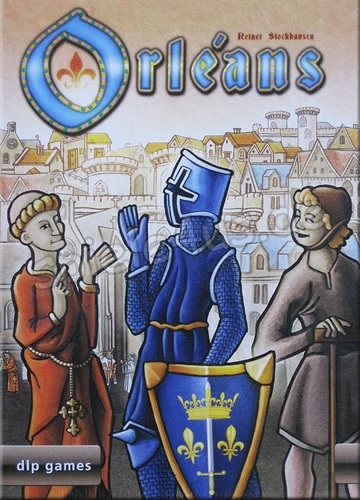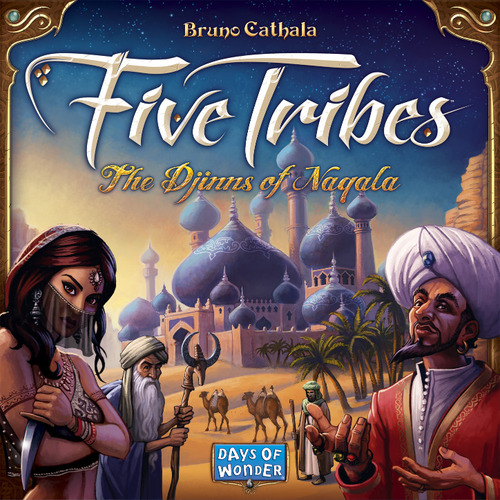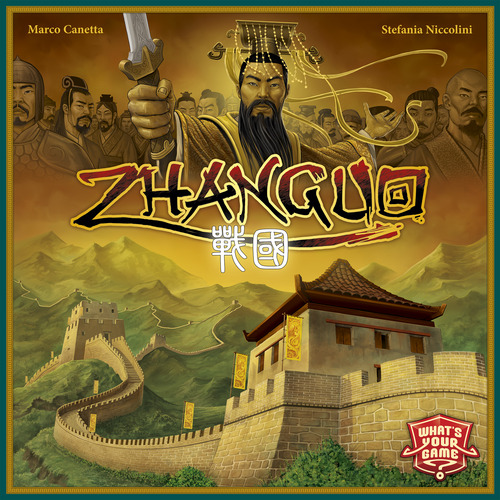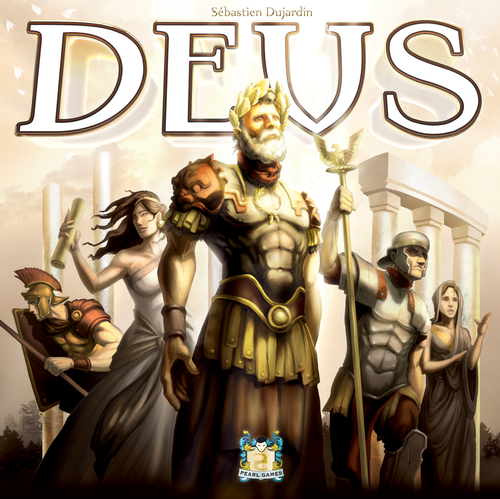The four tournament games played at the European championships of 2015 were
- Deus – Pearl Games
- ZhanGuo – What’s Your Game
- Orléans – dlp games
- Five Tribes – Days of Wonder


Reiner Stockhausen
During the medieval goings-on around Orléans, you must assemble a following of farmers, merchants, knights, monks, etc. to gain supremacy through trade, construction and science in medieval France.In the city of Orléans and the area of the Loire, you can take trade trips to other cities to acquire coveted goods and build trading posts.
You need followers and their abilities to expand your dominance by putting them to work as traders, builders, and scientists. Knights expand your scope of action and secure your mercantile expeditions. Craftsmen build trading stations and tools to facilitate work. Scholars make progress in science, and last but not least it cannot hurt to get active in monasteries since with monks on your side you are much less likely to fall prey to fate.
In Orléans, you will always want to take more actions than possible, and there are many paths to victory. The challenge is to combine all elements as best as possible with regard to your strategy.


Bruno Cathala
Crossing into the Land of 1001 Nights, your caravan arrives at the fabled Sultanate of Naqala. The old sultan just died and control of Naqala is up for grabs! The oracles foretold of strangers who would maneuver the Five Tribes to gain influence over the legendary city-state. Will you fulfill the prophecy? Invoke the old Djinns and move the Tribes into position at the right time, and the Sultanate may become yours!Designed by Bruno Cathala, Five Tribes builds on a long tradition of German-style games that feature wooden meeples.
Here, in a unique twist on the now-standard “worker placement” genre, the game begins with the meeples already in place – and players must cleverly maneuver them over the villages, markets, oases, and sacred places tiles that make up Naqala. How, when, and where you dis-place these Five Tribes of Assassins, Elders, Builders, Merchants, and Viziers determine your victory or failure.


Marco Canetta
Stefania Niccolin
In ZhanGuo, you are the emperor’s emissaries, and you have been assigned the challenging task of contributing to the process of unifying the empire, helping to build the wall, and all infrastructures needed. During the five rounds of the game, you must make the best of the few cards you get each round. You can play each card either on your own player board to increase your personal power in the empire, or on the game board to recruit manpower, construct buildings wanted by the emperor, call reinforcements from Qin, and move the armies from kingdom to kingdom
Each player has to choose the best time and best way to play his cards in order to earn the emperor’s favors. Careful, though, because trying to get too much power, or exploiting the workers for personal gain could increase dissatisfaction among the populace, and consequently increase the risk of uprisings in the newly added kingdoms. Whoever is able to make the greatest contribution to the emperor’s cause, while at the same time keeping the citizens placid, will be the winner.


Sébastien Dujardin
In Deus, players work to develop their own civilizations in a shared environment. Each player starts the game with five building cards, and on a turn a player either uses one of these cards to construct a building or discard one or more cards to make an offering to a god. Cards come in six colors: red for military, green for resource production, blue for trade, brown for scoring, purple for temples, and yellow for a variety of effects.
When you construct a building, you build it in the appropriate location on the modular game board — which is sized based on the number of players with the hexagonal tiles composed of seven landscape “circles” — then you place the card in your personal tableau in the appropriate stack of colored cards and activate the power of all of those cards already in your tableau, starting with the card at the bottom of the stack. When you make an offering, you discard cards, then receive the help of a god associated with one of the cards that you discarded, with the number of cards determining the strength of the associated action. You then refill your hand to five cards. The game ends either when all the barbarian villages on the game board have been surrounded and attacked or when all the temples have been constructed. Whoever has the most points wins.
With many thanks to boardgamegeek.
